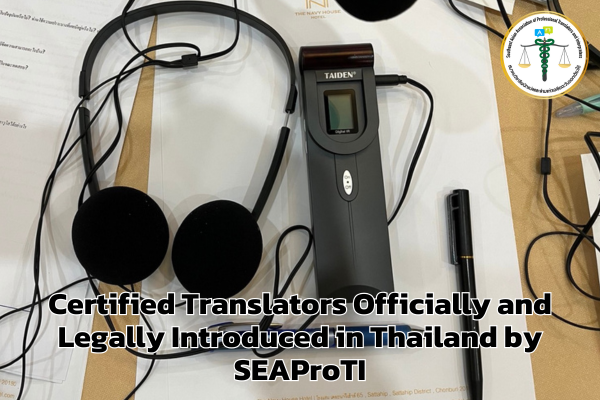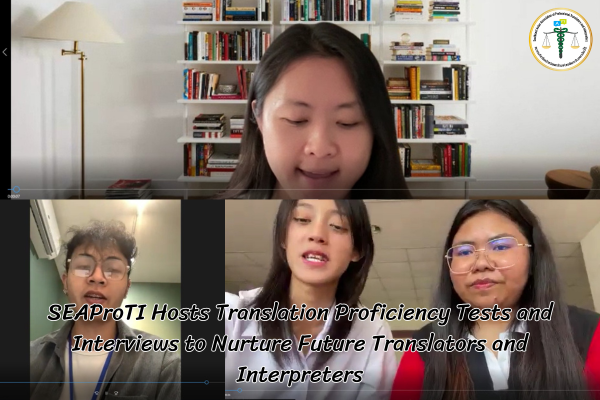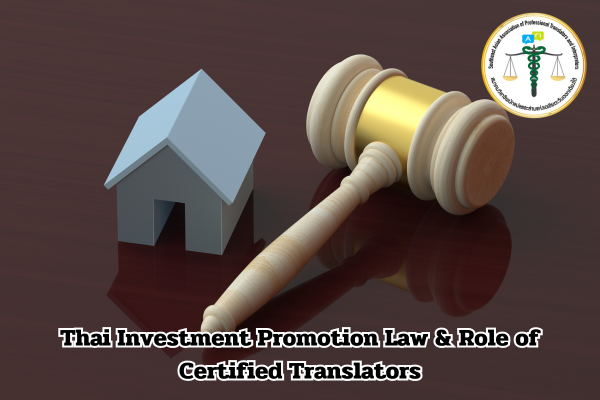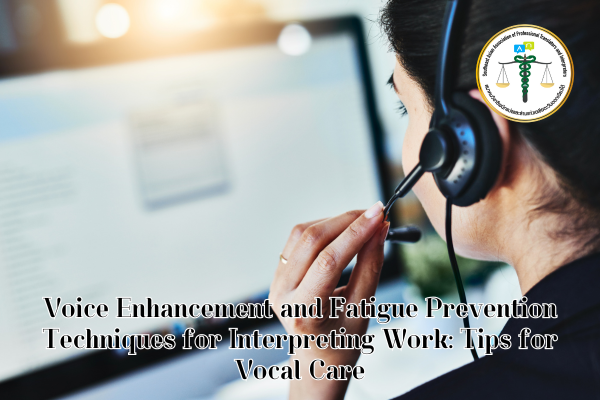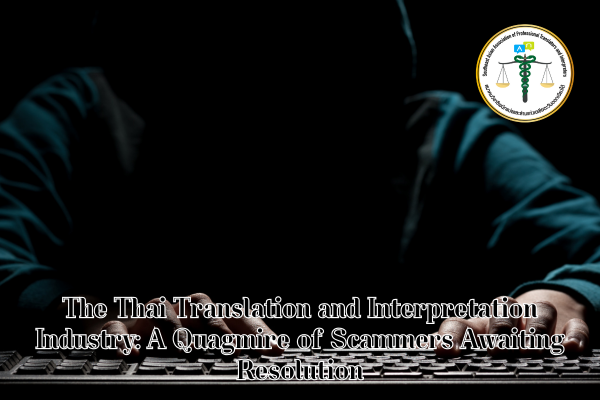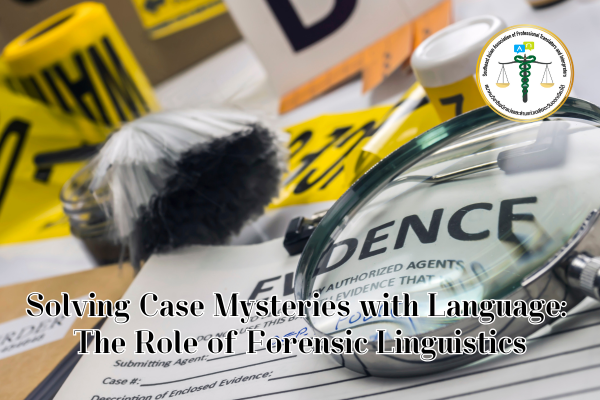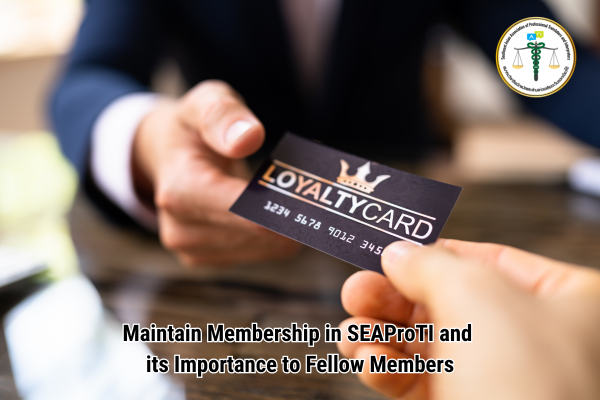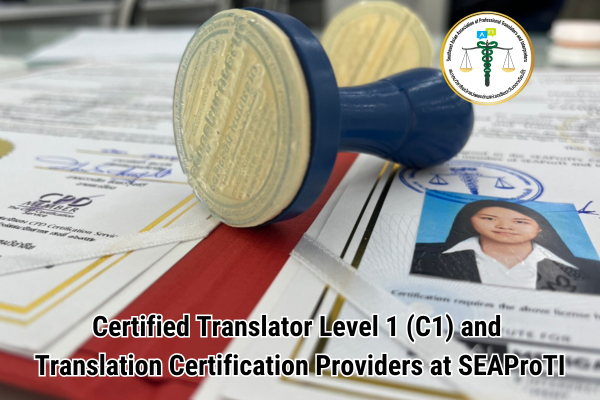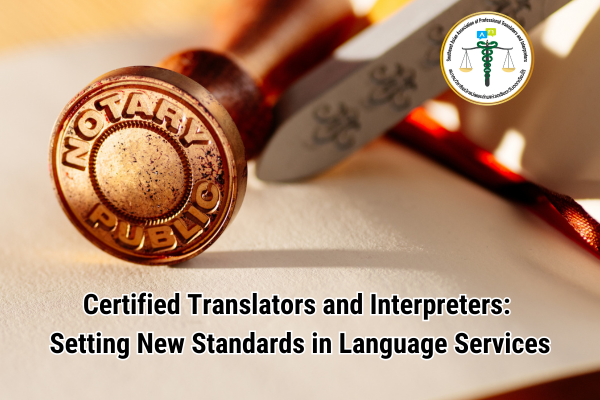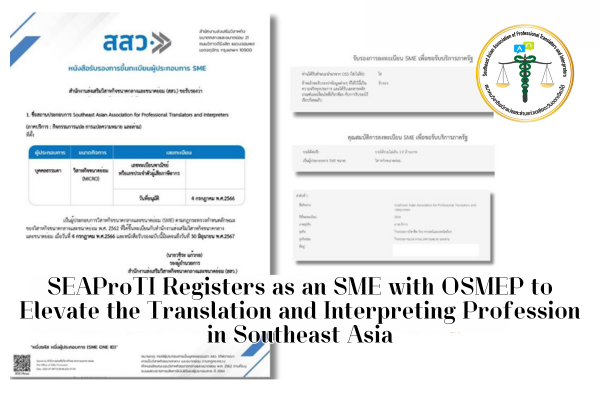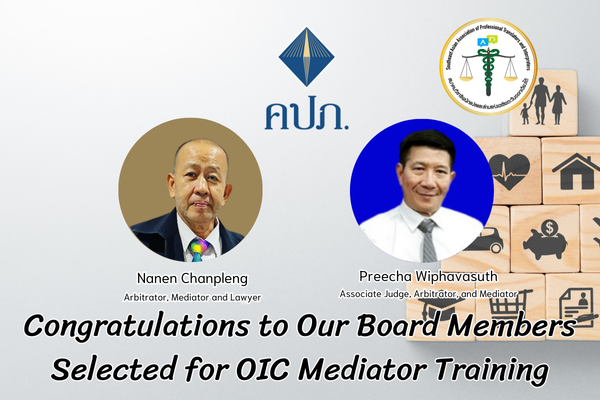The world of translation and interpreting has witnessed a significant transformation in recent years. With globalization expanding the need for accurate and culturally sensitive translations, the demand for professional translators and interpreters has grown exponentially. In Thailand, this evolution reached a historic milestone with the official and legal introduction of certified translators by the Southeast Asian Association of Professional Translators and Interpreters (SEAProTI). This initiative is not only a breakthrough for the industry but also a critical step toward enhancing the credibility and professionalism of language services in the country.
The Need for Certified Translators in Thailand
As Thailand continues to position itself as a hub for international trade, tourism, and diplomacy, the need for reliable and professional language services has become more evident. Legal documents, medical records, business contracts, and government communications all require precise translation. Any error in these translations can lead to severe consequences, including legal disputes, financial losses, and even diplomatic misunderstandings.
Despite the growing demand, the translation and interpreting industry in Thailand has faced challenges. These include a lack of standardized qualifications, inconsistent quality of services, and limited recognition of professional translators. To address these issues, SEAProTI has stepped in to establish a robust framework for certifying translators, ensuring that clients receive services of the highest standard.
SEAProTI: Pioneering Professional Standards
Founded in 2021, SEAProTI has rapidly emerged as a leading professional body in Southeast Asia. Recognized by the Thai government and acknowledged internationally, the association is dedicated to promoting excellence in translation and interpreting. SEAProTI’s certification program for translators is a cornerstone of its mission to uphold professional standards and ensure accountability within the industry.
The certification process introduced by SEAProTI involves rigorous training, comprehensive examinations, and strict adherence to ethical guidelines. By setting a high bar for entry, SEAProTI aims to distinguish its certified translators as experts who can be trusted with even the most sensitive and complex documents.
Legal Recognition of Certified Translators
In 2024, SEAProTI achieved a significant milestone when certified translators were officially and legally recognized in Thailand. This recognition is enshrined in the association’s regulations, as published in the Royal Gazette. It marks the first time that Thailand has formally acknowledged the role of certified translators in its legal and administrative framework.
According to SEAProTI’s regulations, certified translators are authorized to translate and certify documents for legal, medical, and official use. This includes translations required for court proceedings, immigration applications, business registrations, and more. The legal endorsement not only elevates the status of certified translators but also provides clients with greater confidence in the accuracy and reliability of their services.
The Certification Process: Rigorous and Comprehensive
The path to becoming a SEAProTI-certified translator is not an easy one. Candidates must undergo a thorough evaluation process that tests their linguistic skills, subject matter expertise, and ethical judgment. The certification process is divided into several stages:
-
Written Examination: Candidates are tested on their proficiency in the source and target languages, as well as their understanding of specialized terminology in legal, medical, and technical fields.
-
Practical Assessment: This involves translating real-world documents under time constraints, simulating the pressures of professional assignments.
-
Oral Examination: Candidates may be required to explain their translation choices and demonstrate their ability to interpret spoken language in legal or medical contexts.
-
Ethical Training: Certified translators must adhere to a strict code of ethics, ensuring confidentiality, impartiality, and accuracy in their work.
Upon successful completion of these stages, candidates are awarded the title of “Certified Translator” and receive a license issued by SEAProTI. This license is valid for a specific period and must be renewed periodically through continued professional development and submission of work samples.
The Impact on Various Sectors
The introduction of certified translators has had a profound impact across multiple sectors in Thailand.
1. Legal and Judicial System
Certified translators play a crucial role in the legal system, where accurate translation of documents such as contracts, court rulings, and witness statements is essential. Their work ensures that non-Thai speakers receive fair treatment and that legal proceedings are conducted smoothly.
2. Healthcare
In the medical field, certified translators are indispensable for translating patient records, medical histories, and pharmaceutical instructions. Accurate translation can make the difference between effective treatment and life-threatening errors.
3. Business and Commerce
As Thailand attracts more foreign investors, the demand for translating business documents has surged. Certified translators provide reliable translations of financial statements, partnership agreements, and marketing materials, fostering trust and transparency in international transactions.
4. Government and Immigration
Certified translators facilitate communication between government agencies and foreign nationals, ensuring that immigration processes, visa applications, and official correspondences are handled efficiently and accurately.
Benefits for Clients and Translators
The legal recognition of certified translators offers numerous benefits for both clients and translators.
For Clients
- Quality Assurance: Clients can be confident that certified translators meet high professional standards and deliver accurate translations.
- Legal Validity: Certified translations are recognized by courts, government agencies, and international organizations, making them suitable for official use.
- Accountability: SEAProTI’s strict oversight ensures that certified translators adhere to ethical practices and maintain the integrity of their work.
For Translators
- Professional Recognition: Certification enhances the credibility and marketability of translators, distinguishing them from unqualified practitioners.
- Career Advancement: Certified translators gain access to high-profile assignments and better remuneration.
- Continuous Learning: SEAProTI’s certification program encourages ongoing professional development, keeping translators updated with industry trends and best practices.
Challenges and Future Prospects
While the introduction of certified translators marks a significant achievement, it also presents challenges. The rigorous certification process requires a considerable investment of time and effort, which may deter some practitioners. Additionally, SEAProTI must continuously adapt its certification standards to keep pace with the evolving demands of the industry.
Looking ahead, SEAProTI plans to expand its certification program to include more languages and specialized fields. The association also aims to strengthen its collaboration with international bodies, further enhancing the global recognition of its certified translators.
Conclusion
The official and legal introduction of certified translators in Thailand by SEAProTI is a landmark development that promises to elevate the standards of the translation and interpreting industry. By establishing a rigorous certification process and securing legal recognition, SEAProTI has not only enhanced the professionalism of its members but also provided clients with a reliable benchmark for quality.
As the demand for language services continues to grow, certified translators will play an increasingly vital role in bridging linguistic and cultural gaps, contributing to Thailand’s integration into the global community. Through its commitment to excellence, SEAProTI is setting a new standard for the industry, ensuring that the value of certified translators is recognized and appreciated across all sectors.
About SEAProTI:
The Southeast Asian Association of Professional Translators and Interpreters (SEAProTI) has officially announced the criteria and qualifications for individuals to register as “Certified Translators,” “Translation Certification Providers,” and “Certified Interpreters” under the association’s regulations. These guidelines are detailed in Sections 9 and 10 of the Royal Thai Government Gazette, issued by the Secretariat of the Cabinet under the Office of the Prime Minister of the Kingdom of Thailand, dated July 25, 2024, Volume 141, Part 66 Ng, Page 100.
To read the full publication, visit: the Royal Thai Government Gazette


